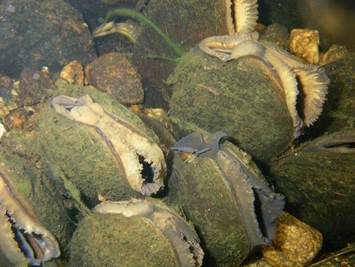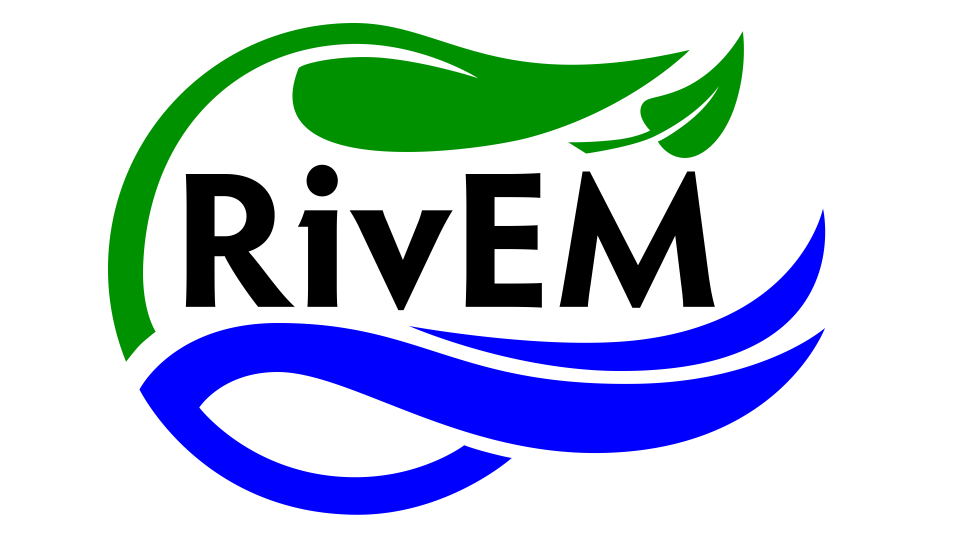6
DEC 2016 
Posted by Daniel Nyqvist |
Nyheter

Freshwater pearl mussels.
The paper “Heavy loads of parasitic freshwater pearl mussel (Margaritifera margaritifera L.) larvae impair foraging, activity and dominance performance in juvenile brown trout (Salmo trutta L.)” by Karl Filipsson, Tina Petersson, Johan Höjesjö, John Piccolo, Joacim Näslund, Niklas Wengström, Martin Österling was recently published in Ecology of Freshwater Fish. In the abstract the authors write:
“The life cycle of the endangered freshwater pearl mussel (Margaritifera margaritifera) includes a parasitic larval phase (glochidia) on the gills of a salmonid host. Glochidia encystment has been shown to affect both swimming ability and prey capture success of brown trout (Salmo trutta), which suggests possible fitness consequences for host fish. To further investigate the relationship between glochidia encystment and behavioural parameters in brown trout, pairs (n = 14) of wild-caught trout (infested vs. uninfested) were allowed to drift feed in large stream aquaria and foraging success, activity, agonistic behaviour and fish coloration were observed. No differences were found between infested and uninfested fish except for in coloration, where infested fish were significantly darker than uninfested fish. Glochidia load per fish varied from one to several hundred glochidia, however, and high loads had significant effects on foraging, activity and behaviour. Trout with high glochidia loads captured less prey, were less active and showed more subordinate behaviour than did fish with lower loads. Heavy glochidia loads therefore may negatively influence host fitness due to reduced competitive ability. These findings have implications not only for management of mussel populations in the streams, but also for captive breeding programmes which perhaps should avoid high infestation rates. Thus, low levels of infestation on host fish which do not affect trout behaviour but maintains mussel populations may be optimal in these cases.”
Read the paper here. If you don’t have access to the journal’s content, email any of the authors.



